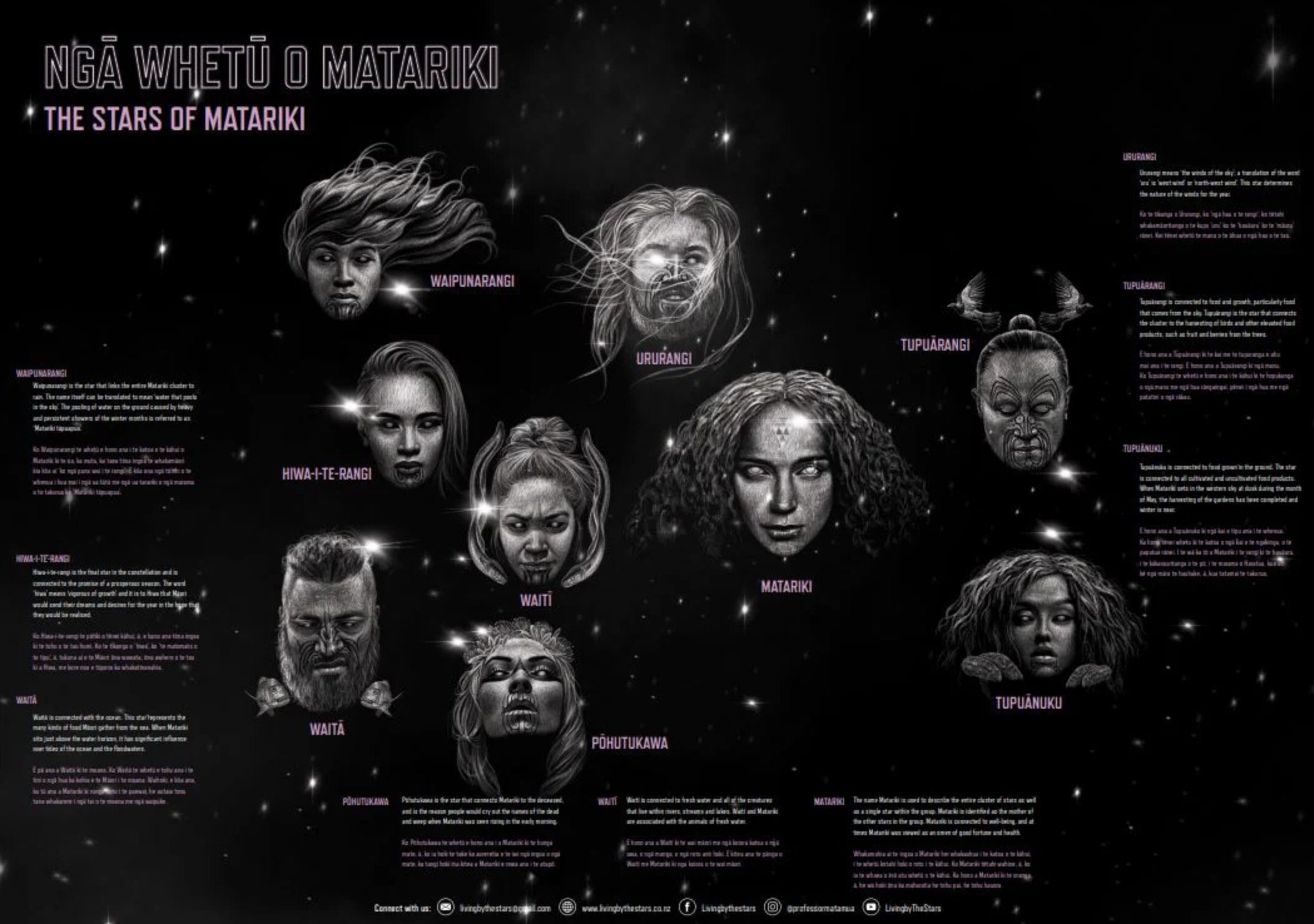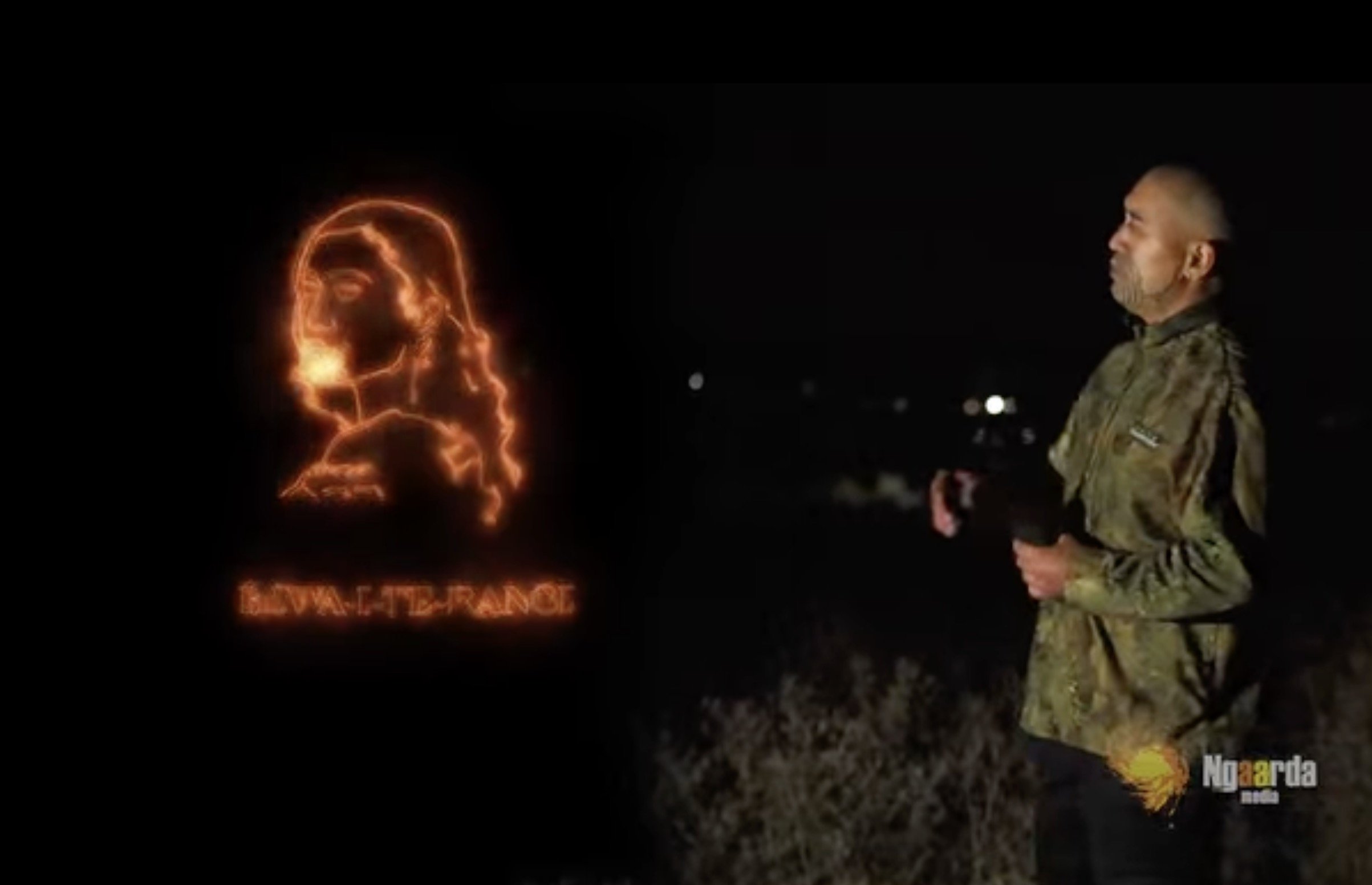MATARIKI MARKED ACROSS AOTEAROA AND AUSTRALIA AS COMMUNITIES REFLECT AND CELEBRATE
Te Kapa Haka ō Māuru at Hearsons Cove this morning in the Pilbara of WA
BY TANGIORA HINAKI AND HAYDEN WOODLEY
Matariki, the Māori New Year, is being marked across Aotearoa and Australia this week with early morning ceremonies, shared meals, and moments of reflection.
The rise of the Matariki star cluster, also known as the Pleiades, signals the beginning of the new year in te ao Māori. While the timing varies slightly by location, it generally appears in the early morning sky in mid-winter, around June.
Mahina a Rangi, a teacher and cultural practitioner, says Matariki is a time to gather with whānau, honour loved ones who’ve passed, and reset for the year ahead.
“It’s a time of harvest and coming together,” she said.
“We reflect on the year that’s gone, remember those who’ve played a part in our lives, and celebrate life, memories and forgiveness.”
Mahina a Rangi is a former Ngaarda Media broadcaster and is a Kura Kaupapa Māori teacher in Heretaunga
Mahina’s school is hosting a dawn ceremony known as hautapu, a traditional ritual where food is cooked and offered to the stars before sunrise.
“We wake up before the sun, cook kai from the land — fish, hunted meat, vegetables — and offer it up with chants and prayers,” she said.
“It’s about asking for good health and wellbeing for our people in the year ahead.”
For those unfamiliar with Matariki, Mahina says it’s often described as the Seven Sisters, similar to stories told by other cultures, including Greek and Japanese.
“For us, Matariki marks our new year. Not January 1st, but when the stars rise in the thick of winter,” she said.
“It connects us to our environment — the land, the sea, the sky, and each other.”
WHAT THE MATARIKI STARS REPRESENT
Different iwi recognise either 7 or 9 stars. Here’s what the nine most commonly recognised stars symbolise:
Matariki – reflection, hope, people coming together
Pōhutukawa – remembrance of those who’ve died
Waitī – freshwater and food from rivers and lakes
Waitā – saltwater and food from the sea
Waipuna-ā-Rangi – rain
Tupuānuku – food grown in the soil
Tupuārangi – food from trees and the sky
Ururangi – wind
Hiwa-i-te-Rangi – aspirations and wishes for the future
Mahina says practising these traditions is an important part of cultural identity and self-determination.
“For all Indigenous peoples, it’s important to keep our old ways alive,” she said.
“Colonisation tried to take these things from us. Practising them now keeps our culture strong.”
As her students camp out in preparation for tomorrow’s early ceremony, Mahina leaves you with a simple greeting for the season:
Mānawatia a Matariki — Celebrate Matariki
The Parburdoo Māori Culture Club are hosting Matariki in the Pilbara of WA
Dates for our Matariki this year:
Friday 20th June - Hangi Hole and Kai prep/Stargazing with Telescope
Saturday 21st June - Matariki Ceremony and Celebration
Sunday 22nd June - FryUp breakfast and farewells




